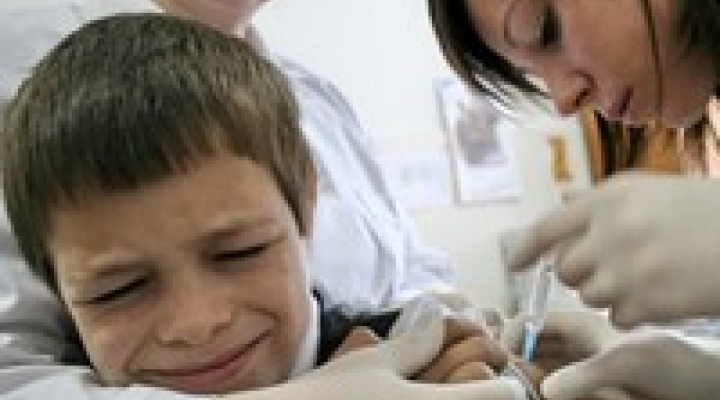The European Week of Vaccination - Promoting childhood immunization in the EP
The seminars meant to intensify the World Health Organization� (WHO) annual vaccination campaign, through hand out of leaflet) and providing instant vaccinations in some cases.
DAHR’s MEP Csaba Sógor participated at the event entitled Childhood immunization - Tackling Challenges and Protecting Our Future as the vice-president of the „Family, Children's Rights and Solidarity between the Generations” intergroup on behalf of the European Parliament (EP).
The guest speakers of the event – medical specialists from Great Britain and Belgium, researchers from Switzerland and the representatives of the public health department of the European Commission (EC) –emphasized the importance of the vaccination campaigns. In their opinion, informing the population is paramount, given the state of immunity never being final and free of risks. Those in danger, specially children and elderly people, can still fall into critical states and become infected with maladies thought to be eradicated or extinct since the Second World War. The ease of travel and the fluidity of state borders accentuate the risks even more so. Lots of citizens of the EU were still not provided with otherwise compulsory vaccines. The main reason being, that member states give the compulsory vaccines at different stages in a child’s life and due to the mobility of persons within the EU; some children are left without all the compulsory vaccinations. It is a curiosity of medical history that some dictatorships made immunization compulsory or made fulfillment of public office dependant on it. As a result, the population in the western part of Germany had such a different level of immunization that a series of vaccination campaigns needed to be implemented in order to fill the “gap” after the unification of Germany in 1990.
The WHO’s partner institution within the EU, the European Centre for Disease Prevention and Control (ECDC) operates out of Sweden and gathers the medical scientific results in order to form scientific guidelines about the risks posed by the new and contagious diseases. The Centre has a tight cooperation with the WHO. Its task is to ameliorate Europe’s ability to protect itself from contagious diseases such as influenza, SARS or HIV/AIDS.
- We barely know anything about the new co ntagious diseases. And based upon those said here today, there isn’t one general solution for all the member states. It is our responsibility to undergo the immunization, we owe this to our respect for our children’s and each other health – said Csaba Sógor in his closing remarks.











